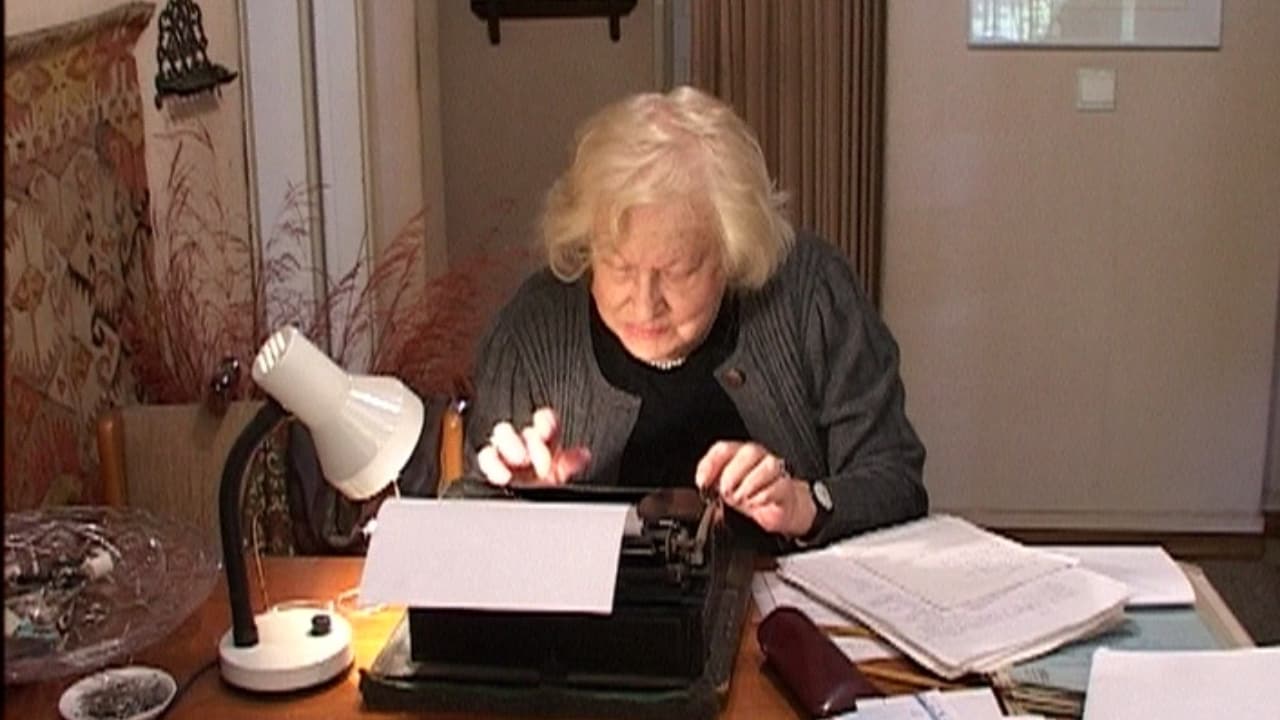Ida Fink - The Garden that Floated Away
Ida Fink wrote only in Polish, but touched many hearts all over the word
The film The Garden that Floated Away tells the story of Ida Fink, one of Israel's most distinguished authors. With her pristine Polish prose, she recounts the Holocaust era, touching upon its horrors without sacrificing elegance and beauty. The film highlights the profound connection between her life and the reality depicted in her work, reflecting the musical and cinematic qualities of her stories.
Ida Fink's home in Holon is a tiny apartment, where a writing desk faces a balcony overlooking a garden. This is the garden she gazes upon while typing on her old Polish typewriter. It is also "the garden that floats away," the namesake of her story that portrays her childhood garden as a symbol of a life lost, never to be the same.
Inspired by Ida's modest lifestyle, the film intimately follows her at 83 years old as she moves out of the apartment where she lived and created for 45 years. She and her 81-year-old sister are embarking on a new future together, sharing an apartment in Tel Aviv. It is the first time they have lived together since the war, when they wandered across Germany and Poland, posing as Polish farmhands and factory workers in a desperate attempt to survive. The film explores the price of that survival and the struggle to reclaim one's true identity after years of denying it.
A film by Yael Perlov and Ruth Walk, it is part of the series A Room of One's Own: Women Writing.
***
About the Series:
A Room of One's Own: Women Writing is a series about women whose lives are dedicated to the craft of writing—women for whom writing is not just a profession, but an existential necessity.
In 1929, the English author Virginia Woolf wrote in her book, A Room of One's Own, "A woman must have money and a room of her own if she is to write fiction." It is remarkable how relevant these words, written decades ago, remain today. The five women featured in this series exemplify the very struggles Woolf alluded to. To make writing the center of their lives, they face a relentless and often bitter struggle for personal and financial independence, frequently making social and familial sacrifices along the way.
The series consists of five episodes, each dedicated to one woman. It captures a day in her life within her natural environment—her "room of one's own." This space encompasses her writing desk, her social circles, and her daily routines. Through this lens, the series delves into the unique thoughts and characteristics that define her as a writer and explores how the act of writing propels her life forward.
The common thread uniting these women is the profound importance of the written word in both their intellectual and practical lives, and the inherent struggles that arise from this commitment.
By observing their daily lives, the films decode why writing constitutes their entire world and examine the interplay between their texts and their lived experiences. The series aims to sketch a portrait of the woman behind the words. In one of her stories, Orly Castel-Bloom wrote, "I live on paper." This sentence, reflecting a deep-seated need to write while also ironically hinting at the perceived "unreal" nature of a woman's life lived solely "on paper," captures the series' goal: to showcase the authors' devotion to their craft while simultaneously emphasizing the reality and significance of their lives. The series reveals women who live not just "on paper," but in the world, fully realizing their inner selves and spirits.
Producer: Yael Perlov
Director: Ruth Walk
Sound Recordist: Tully Cohen
Online Editor: Aviran Aldema
Item already added
plan of is already listed in your Cart!
Press Continue to replace the old plan.












